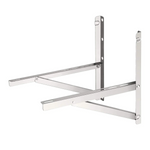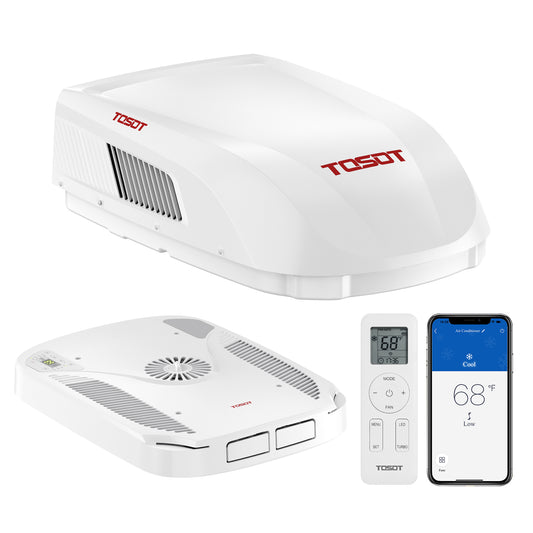A soft start is a device that reduces the surge of electricity needed to start up your RV's air conditioner, allowing it to draw power more gradually and smoothly from your power source. This helps prevent tripped breakers, allows you to run your AC on lower-powered sources, and even reduces wear and tear on your AC's compressor over time. If you’ve ever noticed your lights flicker when you turn on your RV AC or noticed it struggling to keep running while on a generator, then a soft start might be a game changer for you.
How Does a Soft Start Work?
When you switch on your RV AC, it needs a big power boost to get going. This initial "surge" of electricity can often overload your generator, inverter, or campground hookup. A soft start device lowers this startup surge by gradually ramping up power to the AC unit. This softening effect minimizes stress on both the AC and the power source.
Why Should You Consider Installing a Soft Start for Your RV AC?
1. Power Source Limitations
If you rely on limited power sources like small generators or a standard 120-volt household outlet, a soft start can make it easier to run your AC without overloading these sources. Many campgrounds have restricted power supplies, and a soft start enables you to stay cool while working within these limits.
2. Reduced Breaker Trips and Flickering Lights
Without a soft start, the sudden power demand from starting the AC can overload your RV’s electrical system, often resulting in tripped breakers or dimmed lights. By easing the startup load, a soft start reduces the risk of these electrical issues, ensuring a more stable and reliable power flow.
3. Improved Compatibility with Smaller Generators
If you prefer using a smaller, portable generator, you may have noticed difficulty starting or keeping your AC running smoothly. A soft start can allow you to operate your RV AC with a lower-rated generator, giving you more flexibility with your power setup.
4. Protects Your AC Unit
The initial power surge when starting an AC unit can put strain on the compressor, potentially reducing its lifespan. Using a soft start decreases wear on the compressor and extends the life of your air conditioner.
When Should You Install a Soft Start?
- When Traveling to Locations with Limited Power: Campgrounds with restricted electrical capabilities or boondocking sites without shore power can make running an AC difficult. A soft start device is especially beneficial in these situations.
- For RVs with Older or Smaller Electrical Systems: A soft start can ease the burden on your wiring and components if your RV’s electrical system is older or has limited capacity.
- If You Frequently Rely on Solar or Battery Power: For those who use solar panels or batteries to power their RV, a soft start can make your AC more compatible with these renewable energy setups by reducing the initial power load.
A soft start device is a smart investment that enables you to stay cool, protects your AC, and optimizes your power usage. Whether setting camp in a remote area or running off a portable generator, installing a soft start can greatly improve your RV experience.
Installation
See how our partner installed the RV AC and soft start. Soft start installation starts at 08:35.
Buy RV AC and soft start







2 comments
Missing the inside grill and thermostat control
Do you sell ducted units